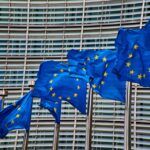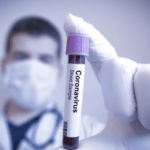The Council has adopted a recommendation amending the recommendation on a coordinated approach to the restriction of free movement in response to the COVID-19 pandemic. This update responds to the evolving epidemiological situation, the ongoing vaccination campaigns and the adoption of the EU digital COVID certificate.
Free movement restrictions
Member states should continue to strongly discourage all non-essential travel to and from dark red areas. This should also be the case for areas with a high prevalence of COVID-19 variants of concern or interest and for areas with unknown prevalence due to insufficient sequencing. People travelling from these areas should still be required to be in possession of a negative test certificate and to quarantine/self-isolate.
Member states could continue to require people travelling from an orange or red area to be in possession of a negative test certificate. If they do not hold such a certificate, people travelling from a red area could be required to quarantine/self-isolate until they obtain a negative test result and people travelling from an orange area could be required to undergo testing after arrival.
Children under the age of 12 should be exempted from the requirement to undergo tests.
Vaccinated and recovered persons
Holders of vaccination certificates issued in line with the EU digital COVID certificate regulation should not be subject to testing or quarantine/self isolation if they are fully vaccinated with an EMA approved vaccine and at least 14 days have passed since full vaccination. Member states could also lift such restrictions after the first dose of a two-dose series.
Recovered persons holding a certificate indicating that less than 180 days have passed since the date of a positive test result should not be subject to testing or quarantine/self isolation.
Minors should not be required to quarantine/self-isolate if the person accompanying them is not required to, for example because they are vaccinated or recovered persons.
Common criteria and mapping
The updated recommendation includes two additional criteria to be taken into account when considering whether to restrict free movement: the vaccination update and the prevalence of COVID-19 variants of concern or interest.
It also raises the thresholds for including an area in one of the four defined colours:
- green: if the 14-day notification rate is less than 50 and the test positivity rate below 4%, or if the 14-day notification rate is less than 75 and the test positivity rate less than 1%
- orange: if the 14-day notification rate is less than 50 and the test positivity rate is 4% or more; if the 14-day notification rate is between 50 and 75 and the test positivity rate is 1% or more; or if the 14-day notification rate is between 75 and 200 and the test positivity rate is less than 4%
- red: if the 14-day notification rate is between 75 and 200 and the test positivity rate is 4% or more; or if the 14-day notification rate is between 200 and 500
- dark red: the threshold for this colour is maintained at a notification rate of more than 500







Leave a Reply